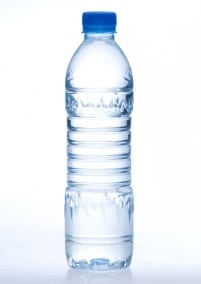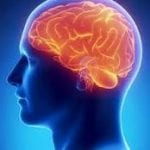It’s not uncommon for people to mistake thirst as a hunger signal. It’s easy to think you feel hungry when you are really thirsty, so drinking water can help cut down on food cravings. Filling up on water not only controls the appetite; it also helps you achieve your nutrition goals by limiting the amount of sodium and calories in your diet.
What else can water do for your diet?
When discussing the benefits of water consumption, people tend to focus on how it keeps them from eating too much. While that is true, there is much more to water than that. It can also help you burn off excess calories.
In order to function properly your body needs a certain amount of water. When it doesn’t have enough water, your body can begin to slow down some of its processes, including the metabolic rate. But an efficient metabolism is crucial to weight loss – the higher your metabolism, the faster you will lose weight. As a result, drinking more water is always to your benefit.
Why water instead of other beverages?
To quench thirst, many people turn to diet drinks and juices, but it is important to stick with water when you’re really thirsty. Some diet sodas have a diuretic effect, as well as high sugar content, artificial sweeteners and carbonation. All of these ingredients will inhibit the effectiveness of a weight loss program.
Water loss during exercise
When you are trying to shed pounds, exercise will probably be part of your daily routine. You already lose about five pints of water each day through the various elimination processes, and the amount can go much higher in warm and humid climates. Add vigorous activity to the mix and you might find yourself needing to replace water a much faster pace. One rule of thumb with water consumption is to drink as much as you like! There is no need to fear “water intoxication.” The benefits of drinking more water far outweigh any perceived risk. The more pressing concern among athletes is drinking too little water.
How much water do you really need?
We’ve all heard about how we need to consume eight glasses of water each day, but sometimes that’s not enough. Much of the water we lose each day is replaced by the food we eat, especially if that food is fruits and vegetables, but the remaining requirement must be met by drinking fluids.
Unfortunately, even in a society that emphasizes drinking eight glasses of water each day, too many people are chronically dehydrated. This is primarily due to the diuretic effect of our favorite drinks, such as coffee, tea, soda, beer and wine. Even some flavored and carbonated waters can have a diuretic effect on the body. This means they have acidic compositions that can cause the body to expel water. Actually, you probably need an extra glass of water for every serving of coffee, wine, beer or sugary soft drinks that you consume.
Why does the body need so much water?
The human body uses a lot of water for the basic functions of the brain and nervous system, but water is also important for cellular energy, detoxification, digestion, lubricating joints, metabolic processes and more. Maintaining these critical functions is one of the primary reasons we need water. In order to function properly and avoid dehydration, your body needs about two quarts of water for every 100 pounds of body weight.
Did you know that many conditions can be prevented, or even cured, by simply drinking more water? One health advocate and researcher on the healing power of water has written a book on the topic, entitled “Your Body’s Many Cries for Water.” This book presents even more evidence that drinking more water is an important facet of maintaining your health.
Photo Courtesy of StockImages / FreeDigitalPhotos.net





